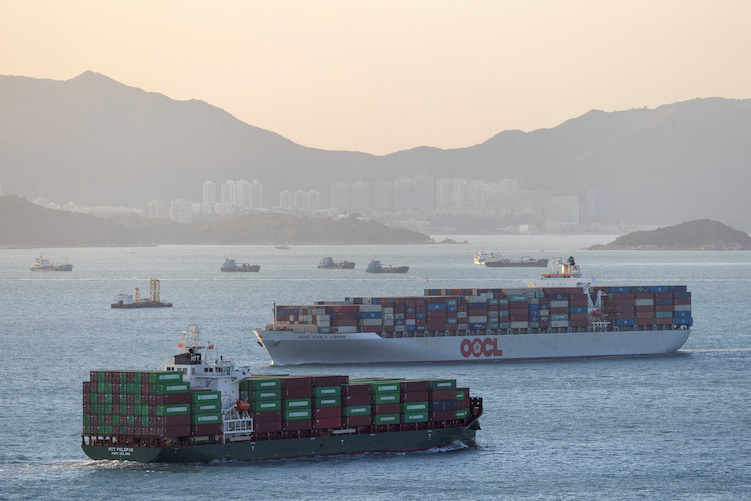China called on Thursday for the US to scrap all “unilateral” tariffs – “if it truly wants” to fix its trade issues.
The call came amid the first sign on Tuesday that the Trump administration may de-escalate its trade war with Beijing.
China also clarified it has not held trade talks with Washington despite repeated comments from the US President and his officials suggesting there had been engagement.
ALSO SEE: Chinese Exporters Slow to Switch to ‘Weak’ Domestic Market
US President Donald Trump has repeatedly said that the US will have a deal with China and on Wednesday said there was “direct contact” between both countries. Trump, who calls his tariffs “reciprocal”, says the duties aim to correct unfair trade imbalances with the US.
The US should remove all “unilateral tariff measures” against China “if it truly wanted” to solve the trade issue, Commerce Ministry spokesperson He Yadong said on Thursday.
“The person who tied the bell must untie it,” he told reporters at a regular press conference.
‘US prepared to slash tariffs to 50-65%’
The Trump administration would look at lowering tariffs on imported Chinese goods from their current level of 145% to possibly between 50% and 65%, pending talks with Beijing, Reuters reported on Wednesday, citing a source familiar with the matter.
China’s He also urged the US to pay attention to the “rational voices” of the international community and domestic parties.
“China and the United States have not conducted consultations or negotiations on tariffs, let alone reached an agreement,” Foreign Ministry spokesperson Guo Jiakun said at a separate news briefing, calling reports of such information “false news”.
At home, China held a roundtable on Wednesday to address concerns of more than 80 foreign firms and chambers over the impact of US tariffs on their investments and operations in China, according to a commerce ministry readout.
“It is hoped that foreign firms will… turn crises into opportunities,” Vice Commerce Minister Ling Ji said at the roundtable, promising to work on resolving problems faced by foreign firms.
In Washington DC, China’s central bank Governor Pan Gongsheng said China would firmly support free trade rules and the multilateral trading system, in remarks made at a G20 meeting on the sidelines of the IMF-World Bank Spring Meetings.
More business sectors opened
Meanwhile, China’s state regulator and planning council published a new version of its “negative list” that relaxes barriers to entering the world’s second-largest economy, reducing the number of restricted industries to 106 from 117.
The so-called negative list specifies industries where activities by foreign investors are either restricted or prohibited. It was first issued in 2018 by Beijing.
The move comes as US tariffs ramp up pressure on China’s economy, which is already reeling from weak domestic consumption and a prolonged debt crisis in the property sector.
China’s National Development and Reform Commission said in a statement on Thursday that the 2025 version of the list lowers the “entry threshold and stimulates market vitality”.
Some areas have been partly liberalized, the NDRC said, including television production, telecommunication services, online information services for pharmaceuticals and medical devices, the use of radioactive drugs by medical institutions, and the import of forest seeds.
Local governments are also encouraged to allow greater access in areas such as transportation and logistics, freight forwarding and vehicle rental services.
Market access to investing in unmanned aerial vehicles and new tobacco products, such as e-cigarettes, is included on the negative list to “ensure a safe bottom line”, the regulator said, without giving further details.
China had said in February it would further break down investment barriers and revise its negative list for market access as soon as possible.
- Reuters with additional input and editing by Jim Pollard
ALSO SEE:
China Mocks Trump’s Turnaround: ‘Tariffs to Drop Substantially’
China Vows to Retaliate if Trade Deals Hurt Its Interests
Cyber Scam Hubs Spread From Asia Like a Global Cancer: UN
Vance Pushes Closer US-India Ties, Issues Curious Warning
EU Rejects US Offer to Cut Tariffs if it Pulls Away From China – IT
TransPacific Cargo Trade Decimated by Trump’s Tariff War
Trump Wants Defence Costs Part of Tariff Talks With Asian Allies
China Follows US Playbook in Rare Earth Crackdown; Tesla Hit
























